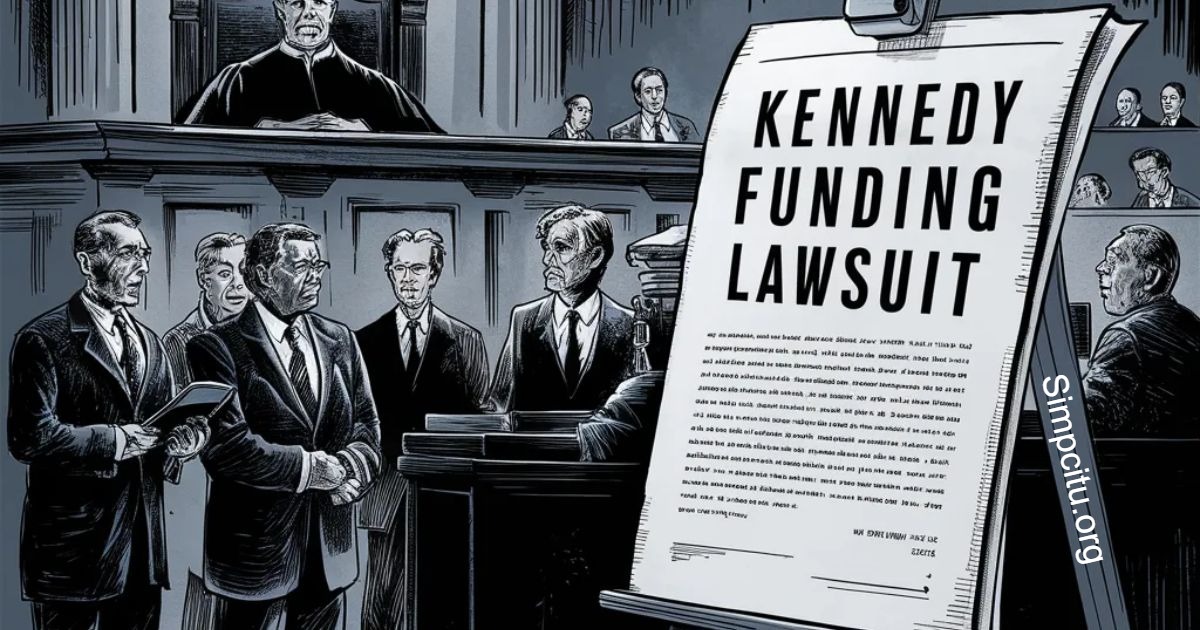Kennedy Funding, Inc. (KFI) is a well-known private lender specializing in bridge loans for commercial real estate. Over the years, KFI has been involved in multiple lawsuits related to lending practices, contract disputes, and allegations of deceptive business dealings. This comprehensive guide explores the key legal battles involving Kennedy Funding, shedding light on the nature of these disputes, the legal arguments presented, and the implications for borrowers and lenders alike.
1. Background of Kennedy Funding, Inc.
Kennedy Funding is a direct private lender that provides short-term, high-interest loans, primarily for commercial and residential real estate ventures. Their loans typically range from millions to tens of millions of dollars, catering to businesses that need fast funding but may not qualify for traditional bank loans. While KFI is recognized for its ability to close deals quickly, it has also faced criticism and legal action from borrowers who claim they were misled or unfairly treated.
2. Common Legal Issues in Kennedy Funding Lawsuits
Most lawsuits involving Kennedy Funding center around the following legal issues:
- Breach of Contract: Borrowers claim KFI did not honor the terms of their agreements.
- Fraud Allegations: Some borrowers allege that KFI misrepresented loan terms or engaged in deceptive lending practices.
- Unjust Enrichment: Claims that KFI profited unfairly at the expense of borrowers.
- Failure to Close Loans: Borrowers accuse KFI of demanding high fees but failing to fund the loans as promised.
- Racketeering Allegations: Some lawsuits invoke state or federal RICO (Racketeer Influenced and Corrupt Organizations) laws, arguing that KFI’s practices amount to systematic fraud.
3. Notable Kennedy Funding Lawsuits
A. Ruggers Acquisition and Development, LLC v. Kennedy Funding, Inc.
- Case Summary: Ruggers Acquisition sought an $18 million loan from KFI for a Nevada property. After paying an initial commitment fee, the loan did not close due to valuation disputes.
- Allegations: Ruggers accused KFI of operating an advance fee scheme, where borrowers pay large upfront fees but never receive the promised funds.
- Legal Outcome: Some claims were dismissed, but others were allowed to proceed, highlighting concerns over transparency in loan agreements.
B. Construcciones Haus Sociedad v. Kennedy Funding, Inc.
- Case Summary: A Mexican company sought a multimillion-dollar loan from KFI. After paying a commitment fee, the loan did not materialize, leading to a legal dispute.
- Allegations: Construcciones Haus accused KFI of fraud, breach of contract, and consumer fraud violations under New Jersey law.
- Legal Outcome: Several claims were dismissed, but some remained, underscoring challenges in cross-border lending agreements.
C. Lion’s Gate Development, LLC v. Kennedy Funding, Inc.
- Case Summary: KFI agreed to lend $18.2 million to Lion’s Gate Development, which paid a significant commitment fee. When the loan did not close, a legal battle ensued.
- Allegations: Lion’s Gate accused KFI of fraud, breach of contract, and violating consumer protection laws.
- Legal Outcome: While KFI maintained that it acted within its contractual rights, some counterclaims were allowed to proceed, illustrating the risks involved in high-stakes real estate lending.
D. Kennedy Funding, Inc. v. Greenwich Landing, LLC
- Case Summary: Kennedy Funding pursued foreclosure against Greenwich Landing, claiming default on an $11 million loan.
- Legal Dispute: The borrower argued that KFI lacked standing to enforce the loan because it was acting as an agent for undisclosed principals.
- Court Ruling: The court upheld KFI’s right to foreclose, emphasizing that as the holder of the loan documents, it had the authority to enforce them.
4. Lessons from Kennedy Funding Lawsuits
For borrowers, these lawsuits highlight the importance of thoroughly reviewing loan agreements before signing. Some key takeaways include:
- Understand Commitment Fees: These fees can be substantial, and in many cases, are non-refundable.
- Clarify Loan Terms: Ensure all details regarding interest rates, repayment schedules, and loan conditions are explicitly stated.
- Assess the Lender’s Track Record: Research prior lawsuits and borrower experiences to evaluate potential risks.
- Seek Legal Counsel: Consulting an attorney before agreeing to a loan can help avoid legal complications later.
For lenders, the cases against KFI serve as reminders of best practices in commercial lending:
- Transparency is Crucial: Communicate loan terms and conditions to avoid legal disputes.
- Fair Business Practices Matter: Ethical lending builds trust and prevents allegations of fraud.
- Legal Preparedness is Key: Strong legal teams and airtight contracts help defend against lawsuits.
5. The Future of Kennedy Funding and Private Lending
Despite ongoing lawsuits, Kennedy Funding remains a significant player in private lending. The firm continues to close high-value deals, particularly in situations where conventional financing is not an option. However, increased regulatory scrutiny and legal challenges could push private lenders to adopt more borrower-friendly policies.
As legal disputes around commercial lending practices persist, courts will continue to shape the rules governing private lending. The key for both borrowers and lenders is to operate with transparency, fairness, and legal diligence to minimize disputes and ensure smooth financial transactions.
Final Thoughts
Kennedy Funding lawsuits highlight the complexities and risks in private real estate lending. While KFI has successfully funded many deals, its legal history raises concerns for potential borrowers. Anyone considering a loan from a private lender should conduct thorough due diligence, review contracts carefully, and seek legal advice to avoid costly legal battles.
Understanding these lawsuits provides valuable insights into the evolving landscape of commercial lending and the importance of protecting financial interests in high-stakes real estate deals.


